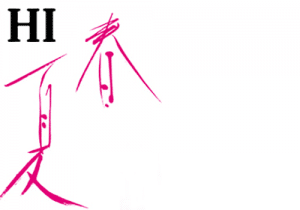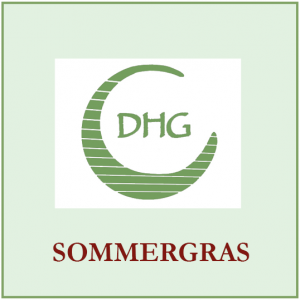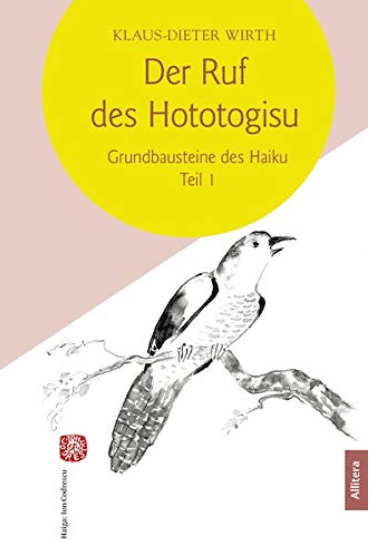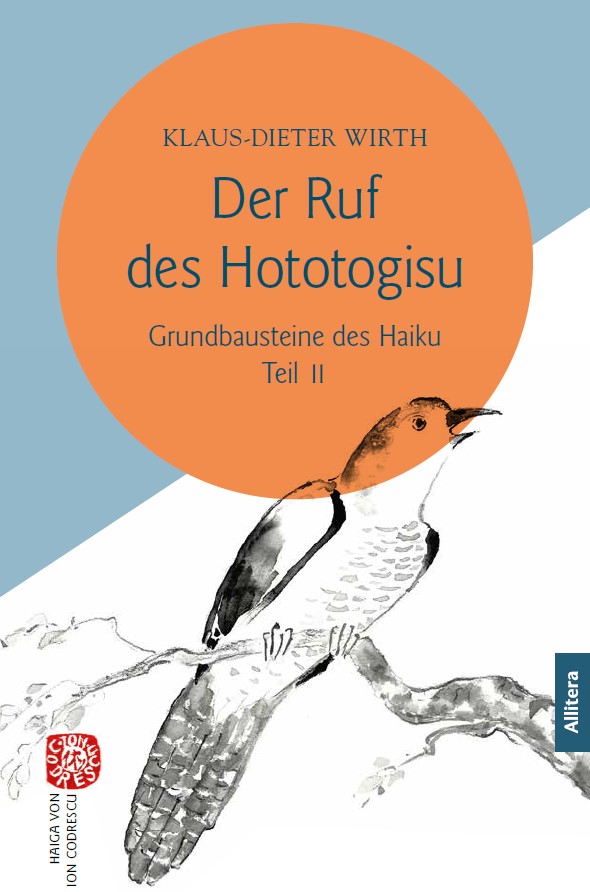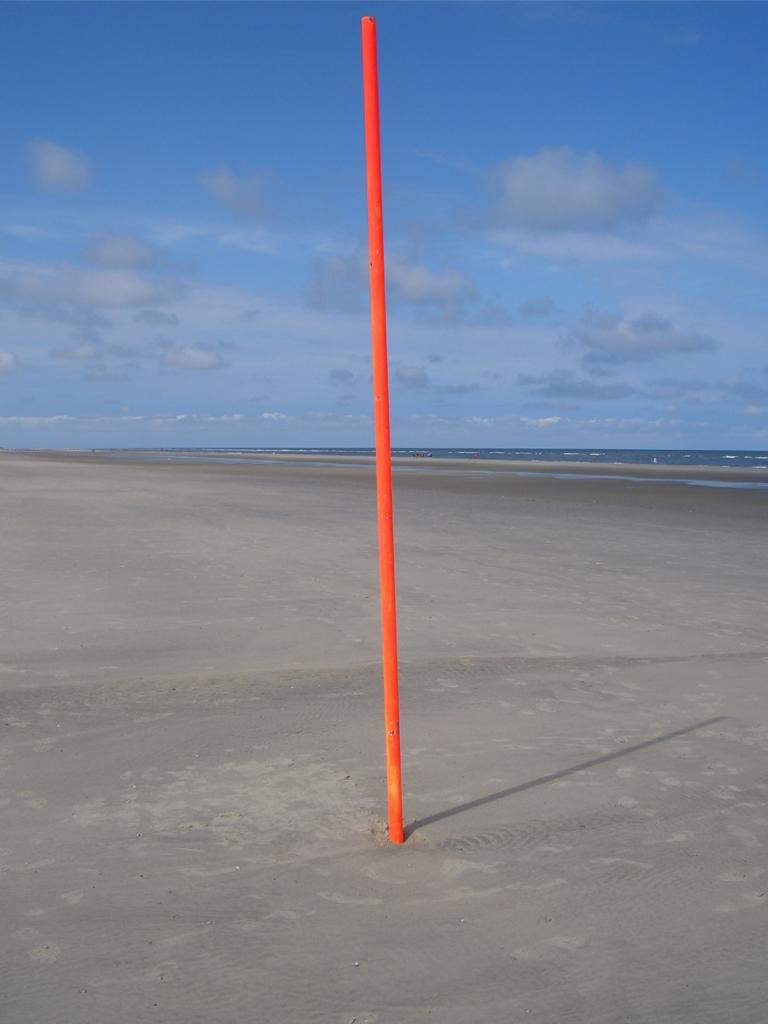Es wurden insgesamt 240 Haiku von 83 Autoren und 38 Tanka von 21 Autoren für diese Auswahl eingereicht. Einsendeschluss war der 15. Januar 2019. Diese Texte wurden vor Beginn der Auswahl von mir anonymisiert. Jedes Mitglied der DHG hat die Möglichkeit, eine Einsendung zu benennen, die bei Nichtberücksichtigung durch die Jury auf einer eigenen Mitgliederseite veröffentlicht werden soll.
Eingereicht werden können nur bisher unveröffentlichte Texte (gilt auch für Veröffentlichungen in Blogs, Foren, sozialen Medien und Werk-stätten etc.).Bitte keine Simultan-Einsendungen!
Bitte vorzugsweise alle Haiku/Tanka gesammelt in einem Vorgang in das Online-Formular auf der DHG-Webseite selbst eintragen:
deutschehaikugesellschaft.de/haiku-und-tanka-die-auswahl/
Ansonsten per Mail an:
auswahlen@deutschehaikugesellschaft.de
Der nächste Einsendeschluss für die Haiku-/Tanka-Auswahl ist
der 15. April 2019.
Jeder Teilnehmer kann bis zu fünf Texte – davon drei Haiku – einreichen. Mit der Einsendung gibt der Autor das Einverständnis für eine mögliche Veröffentlichung in der Agenda 2020 der DHG sowie auf http:/www.zugetextet.com/
Haiku-Auswahl der HTA
Die Jury bestand aus Bernadette Duncan, Sebastian Salie und Helga Stania. Die Mitglieder der Auswahlgruppe reichten keine eigenen Texte ein. Alle ausgewählten Texte – 29 Haiku – werden in alphabetischer Reihenfolge der Autorennamen veröffentlicht. Es werden bis zu max. zwei Haiku pro Autor aufgenommen.
„Ein Haiku, das mich besonders anspricht“ – unter diesem Motto be-steht für jedes Jurymitglied die Möglichkeit, bis zu drei Texte auszusuchen (noch anonymisiert), hier vorzustellen und zu kommentieren.
Da die Jury sich aus wechselnden Teilnehmern zusammensetzen soll, möchte ich an dieser Stelle ganz herzlich alle interessierten DHG-Mitglieder einladen, als Jurymitglied bei kommenden Auswahl-Runden mitzuwirken.
Eleonore Nickolay
Ein Haiku, das mich besonders anspricht
der Sitzstein am Teich
nach dem Regen –
erwarte mich dortClaus Hansson
Beim ersten Durchlesen mögen die Fragen auftauchen, ob dies überhaupt ein Haiku ist, ob die Zeilen nicht etwas altbacken klingen und das Setting zu sehr an Übersetzungen alter Haiku und eine fernöstliche Gartenlandschaft denken lässt. Kommt man dann wieder vorbei – der Sitzstein lädt zum Verweilen ein – wird dieses Gedicht vielleicht unter ‚unkonventionell‘ eingeordnet und wir erinnern uns etwa an Bashōs ‚Führe mein Pferd / übers Moor / dorthin wo der Kuckuck ruft‘*.
Gleichzeitig bemerken wir, dass trotz der klaren Sprache, trotz des Sitzsteins, des Regens und der Angabe ‚dort‘ alles sehr vage bleibt und vielerlei Möglichkeiten zulässt: Welcher Teich, welcher Sitzstein, nach welchem Regen? Nach der langen Regenzeit im Herbst oder Winter, nach einem Sommerregen oder dem Schnee tauenden Frühlingsregen? Und wer ist überhaupt der Verfasser – Mensch, Engel, Naturwesen? Wer der Adressat? Spannung entsteht: Wird er/sie diese Zeilen lesen und warten? Oder bin etwa ich und damit jegliche/r Leser/-in gemeint?
Das ‚Warte, warte‘ des Frosches im Märchen vom Froschkönig klingt an. Haben wir nicht immer die Wahl zwischen warten (den Geruch nach dem Regen bemerken, die letzten Tropfen, die in den Teich fallen, die raue Oberfläche des Steins usw.) und weitereilen? Eine fast universelle Vieldeutigkeit tut sich auf, verstärkt durch die Vermischung der Zeitebenen von Vergangenheit, Gegenwart und Zukunft. Vielleicht ist das Gedicht ja so eine Art von Rezept zum Haiku schreiben selber.
*(No o yoko ni uma hikimuke yo hototogisu; engl. Übers. v. R.H. Blyth: Lead my horse/ Across the moor/ To where the hototogisu is singing!)
Ausgesucht und kommentiert von Bernadette Duncan
Heidedorf –
kein Laden in Sicht, Kinder
mit Pfeil und BogenMarcus Blunck
Durch die Bedeutung und den Klang der ersten Zeile entsteht ein idyllisch anmutendes Bild. Es könnte eine der berühmt-berüchtigten Heimatmalereien sein, wie man sie zuweilen in bestimmten Cafés oder Wohnzimmern erblickt.
Zeile 2 liest sich daraufhin wie eine in die Szene hineingerufene Dekonstruktion dieses Eindrucks, die Aussage erinnert nun eher an eine durchreisende Familie, die den Ort auf erhoffte Versorgungsmöglichkeiten reduziert, wobei gleichzeitig eine Enttäuschung über einen Mangel an ebendiesen Ausdruck verliehen wird. Doch Vorsicht, es lauert eine Finte darin, die sich bereits durch das Komma andeutet! Die Kinder sind vielleicht gar nicht direkt angesprochen, sondern vielmehr Teil des beschriebenen Bildes.
Tatsächlich: Zeile 3 verrät, dass diese Kinder mit Pfeil und Bogen ausgerüstet sind, und es erscheint unwahrscheinlich, dass sie sich in der Fremde auf der Suche nach einem Geschäft befinden würden. Vielmehr gehören sie zu diesem Dorf und spielen dort einfach nur.
Ist die anfängliche Idylle damit wieder hergestellt? Zunächst eher nicht. Schließlich dienen hier Distanzwaffen als Spielzeug, was nicht ungefährlich ist und in manchen Augen auch von fragwürdigem pädagogischem Wert in Sachen Konfliktmanagement sein dürfte. Zudem könnte die Präsenz dieses ebenso als archaisches Jagdgerät deutbaren Equipments das in Zeile 2 beschriebene Fehlen von Versorgungsmöglichkeiten wieder aufgreifen und ihm dadurch größeres Gewicht verleihen. Demnach lässt sich das Gedicht auch als düster nachhallender Hinweis auf die Entwicklung der Infrastruktur im ländlichen Raum und eine dadurch bedingte zivilisatorische Regression in der Ödnis lesen.
Möglich ist aber ebenso das Gegenteil: Wenn man möchte, zeigt diese Skizze Kinder, die symbolisch für die Zukunft stehen und die abseits der oberflächlichen Konsumwelt spielerisch lernen, verantwortungsvoll zu handeln und nachhaltig für Nahrung zu sorgen. Das wäre schon mehr als Idylle, das wäre Utopie – und nicht die schlechteste, sofern man nicht ohnehin mit vegetarischer Kost auskommt.
Wie auch immer: Dieser Text erzeugt m. E. eine eigenartige Spannung und regt zum Nachdenken an, weshalb er mich besonders anspricht.
Ausgesucht und kommentiert von Sebastian Salie
Angelusläuten.
Einer Wasseramsel aufgefächertes GefiederRamona Linke
Ein Haiku, das sich dem gewohnten Schema entzieht, ausgefeilt in Form und Sprache evoziert es Bilder und Gedanken.
Das Geläut mischt sich mit dem Klang des Wassers, klar und schnell fließend dürfte es sein, wie es die Wasseramsel liebt. Menschenwelt und Natur treffen zusammen, vielleicht zum Innehalten und Hoffen, dass der Lebensraum dieses scheuen Vogels erhalten bleibt.
Ausgesucht und kommentiert von Helga Stania
Die Auswahl
Giftgasanschlag
im Hals des Nachrichtensprechers
ein KloßChrista Beau
Patiencen
irgendwann
kommt doch einerMartin Berner
letzter Tag
leise verschieben wir
die WorteChristof Blumentrath
auf weichen Sohlen
aus dem Orchestergraben
das FlügelhornChristof Blumentrath
Heidedorf –
kein Laden in Sicht, Kinder
mit Pfeil und BogenMarcus Blunck
tote Fliege
die Beine geschlossen
zu einem SternMarcus Blunck
der unbekannte Soldat –
seine Frau legt
Blumen auf das GrabGerd Börner
Großvater
starrt seinen Schatten an –
KlezmerklängeGerd Börner
bevor das Jahr verrinnt
noch einmal
zur QuelleHorst-Oliver Buchholz
Nachsaison.
Ein Strandwanderer pfeift
in der Tonart des Winds.Reinhard Dellbrügge
Herbstabend …
den Nebel rückwärts lesenFrank Dietrich
im hospiz
ein neuer tag
mittag abendGregor Graf
der alte Meister
sein Tagewerk vollbracht –
Maserung im LichtClaus Hansson
Dichterlesung –
unter der Steineiche
Seide im WindClaus Hansson
Kirchenaustritt ihr anderer Blick
Birgit Heid
Sommerwind das Geräusch seiner Blätter
Birgit Heid
Osternester
noch immer leer
ihr BlickGabriele Hartmann
Nacht in fremder Stadt
ganz leicht fände ich den Weg
auf ihrer HautMarkus Heep
Novemberlicht
durchs Laub das mir der Wind ließAnke Holtz
Der Kater und ich
Genießen die Stille
NeujahrsmorgenDeborah Karl-Brandt
den Zug verpasst
und nun
die ersten SchlüsselblumenEva Limbach
Schneemorgen …
in seinen Armen
keine Worte finden müssenRamona Linke
Wintervögel
wir zählen die Zeit
die uns bleibtEleonore Nickolay
Bügeltag
auf seinem Hemd das Auf und Ab
meiner GedankenEleonore Nickolay
Versöhnung
Die Klinke fehlt – du öffnest
von innenAngelica Seithe
Die Schranke senkt sich
Langsam fährt ein Zug vorbei
AtempauseSulamith Sommerfeld
während der Zugfahrt
lächelte er mir zu
der volle MondBrigitte ten Brink
Der kräftige Windstoß
zwei Lachen
und schweigenLinda Weidmann
Tanka-Auswahl der HTA
Tony Böhle und Silvia Kempen wählten vier Tanka aus.
„Ein Tanka, das mich besonders anspricht“ – unter diesem Motto werden Texte vorgestellt und kommentiert.
Ein Tanka, das mich besonders anspricht
Schweigen
zwischen dir und mir
ein stiller See
ein totes Meer
ein Ozean auf dem MondFrank Dietrich
Schweigen an sich kann situationsbedingt sehr unterschiedliche Formen annehmen, sowohl positiv als auch negativ.
Auf educalingo gibt es folgende Definition dazu:
„Schweigen ist eine Form der nonverbalen Kommunikation, bei der nicht gesprochen wird und bei der auch keine Laute erzeugt werden. Im Allgemeinen können trotz des Schweigens vom Individuum als ein Sender bestimmte Informationen mitgeteilt und Bedeutungen gezeigt werden. Eine besondere Verbreitung hat das Schweigen in den Religionen und Rechtssystemen sowie in der Spiritualität.“
„Schweigen / zwischen dir und mir“ sagt noch nichts über die Form der Situation aus. Handelt es sich um ein harmonisches Schweigen zwischen zwei Menschen, verstehen sie sich ohne Worte oder gibt es Missstimmungen, vielleicht ist ein Streit vorausgegangen? Kommt die dritte Zeile „ein stiller See“ hinzu, so kann ich mir ein romantisches Umfeld vorstellen, aber der stille See könnte auch „zwischen“ den beiden Personen liegen, was auf einen gewissen Abstand schließen ließe.
Dann: „ein totes Meer“. Hier findet die Wendung statt, die in der vorhergehenden Zeile schon unterschwellig mitschwingt. In meinen Augen verabschiedet sich die Romantik, die Harmonie endgültig. Jetzt sehe ich eher ein Paar, das sich wahrscheinlich schon lange kennt und sich nichts mehr zu sagen hat, die Worte sind verstummt. Das wird in der nachfolgenden Zeile „ein Ozean auf dem Mond“ noch verstärkt. Bildlich gesehen wird der Abstand oder die Kluft zwischen den beiden noch größer. Aber auch das Schweigen erfährt eine Steigerung. So stelle ich mir die Stille eines toten Meeres beklemmender vor als die Stille eines Sees, und auf dem Mond ist die Stille absolut. Denn Geräusche werden durch den Schall übertragen, der wiederum einen Träger benötigt. Das ist auf der Erde die Luft. Der Mond aber besitzt keine Atmosphäre und somit auch keine Luft oder anderweitigen Träger für den Schall.
Ausgesucht und kommentiert von Silvia Kempen
Die Auswahl
Schweigen
zwischen dir und mir
ein stiller See
ein totes Meer
ein Ozean auf dem MondFrank Dietrich
späte heimkehr
die treppe knarrt
silbrig der mond
schwankt
hin und herGregor Graf
die bunten Eier
in den Nestern der Enkel
betracht ich
mit Verlangen und gönne mir
ein weißesGabriele Hartmann
Weites Gelände,
Horizont zu Horizont:
Zaun, Draht und Gleise.
Die Aschegrube: leer. Kein
Rest von Mauern und Menschen.Carsten Kaven


